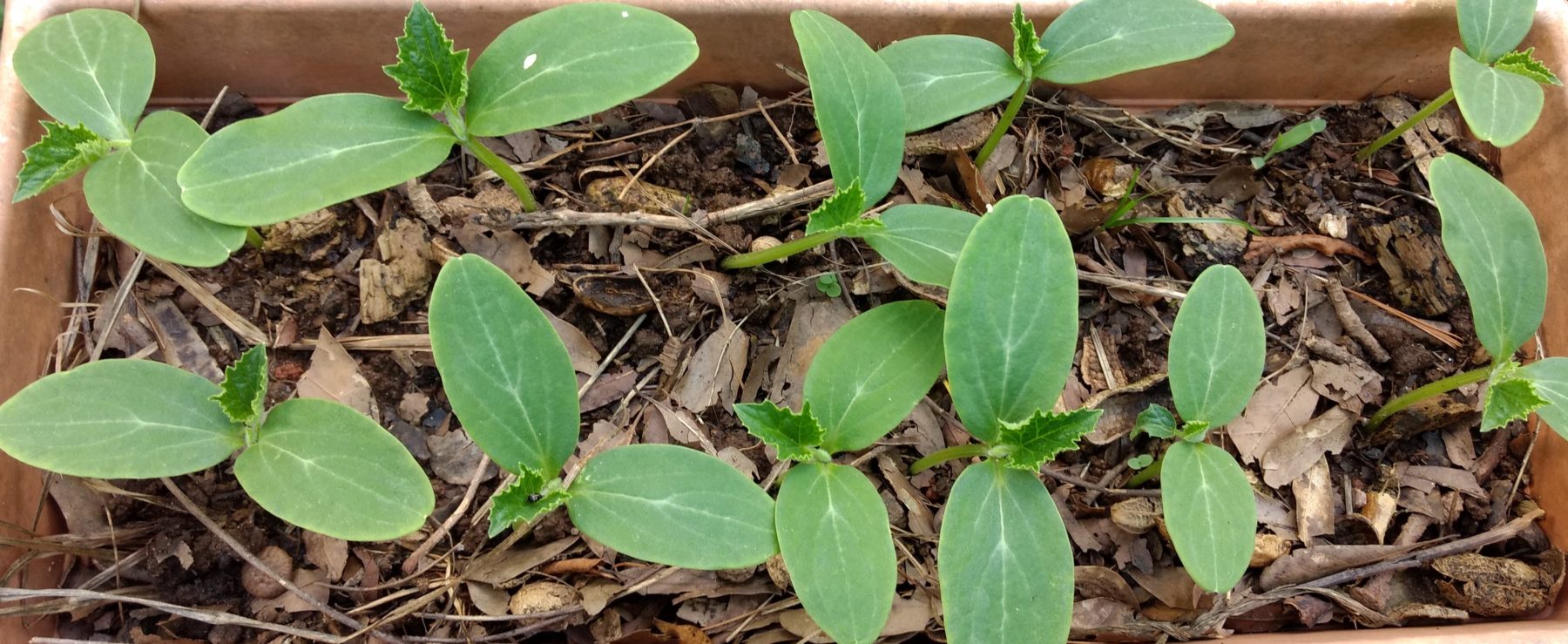Beneficial Weeds in God’s Sustainable Design
by Sabrina Dawkins
I received a letter in the mail over three weeks ago from a company offering to kill my weeds, a fancy, impersonal business letter probably sent out to thousands. This is the second letter I’ve received offering to destroy my weeds since I’ve lived here. I was slightly annoyed and thought to myself that they must not know much about organic gardening.
I had a dream shortly after receiving the letter, which gave me the information that informed my thoughts below. I’m in my garden in the area where the tallest and densest weed patch had grown in real life, and I’m transplanting some one-leaf seedlings into the garden. It seems that the only reason they’d have only one leaf is that insects had eaten off the other leaves. And the one leaf seems like the cotyledon, one of the first two leaves of the seedling, so it’s not even a true leaf. A seedling transplanted into the garden with only one leaf that’s not even a true leaf has very little chance of surviving in an organic garden.
Then I take one seedling and transplant it into a white bucket of dirt by itself. The dirt is heavy and cracking, and there are a lot of black ants crawling in it, so I don’t want to stick my hand in, and only do so briefly to smooth over the dirt where it is cracking so the roots won’t be exposed. A white boy around 10 years old walks in front of me as I’m transplanting the single seedling into a bucket by itself. He smiles at me as he passes by, walking across my garden, going left. The dream scene ends.
About a month ago in 80-something-degree weather, I went outside to my group of compost bins that are under the shade of a huge tree in my backyard. The most shaded area doesn’t grow grass or weeds at all. It had been at least a week since the last rain, and the bare ground, where neither grass nor weeds grow, was cracking in several places. The ground was so hard that you could see the black chasms in between jagged lines in the dirt, like someone had taken a hammer and deliberately slammed it several times on the glass-like ground. There was no cracking where grass and weeds grew.
It’s ideal to create a soil sponge for your crops to sink their roots into and absorb their moisture from. And the sponge remains moist when you continue to add layers of compost, fallen leaves, sticks, et cetera to it, which covers the bare ground, keeping it cool and moist, and allows earthworms to tunnel through it and provide pathways for roots, water, and oxygen to travel through. The light-weight leaves, broken-down sticks, and finished compost make the soil less heavy and brick-like to plant roots by covering the ground and therefore slowing down water evaporation and creating air pockets so that water and oxygen easily permeates the ground.
Uncovered ground becomes dry, hard, and infertile. Weeds and grass are a natural covering for unused ground to keep it cool, fertile, and moist for future use. The impersonal advertisement letter, however, marked weeds as simply a nuisance to be quickly eliminated.
Of course if I removed the weeds chemically, my organic garden would be more sightly to passing strangers, but come time to plant in that area, I’d be out of luck trying to work it and would probably need a coal miner’s pickaxe to break up the hard ground to give plant roots a chance to try to grow in it. Ants also like to occupy dry, warm soil, and red ant bites are no joke.
The perfection of God’s design allows me to compost in the spot when I get ready to transplant plants into a ground covered, cooled, and kept moist by weeds. I simply turn over the soil and work the uprooted weeds into the soil along with the surrounding leaves and compost to create a fertile, airy sponge for young plants to easily work their roots through. I don’t have enough fallen leaves to adequately cover my entire garden, so the weeds provide the extra protection from extreme temperatures and also naturally repel ant colonies. The problem is that compost-producing organisms love organic gardens rich in organic matter and will also eat seedlings, so I have to start everything in buckets and then transplant. I wait until plants are too big to fail, or too big to be completely consumed by the living composters to transplant them into the fertile garden soil.
So weeds are actually beneficial. And a wise sower knows how to use tares in order to strengthen the roots of the crops, or wheat, in the good ground (Mark 4:8).
